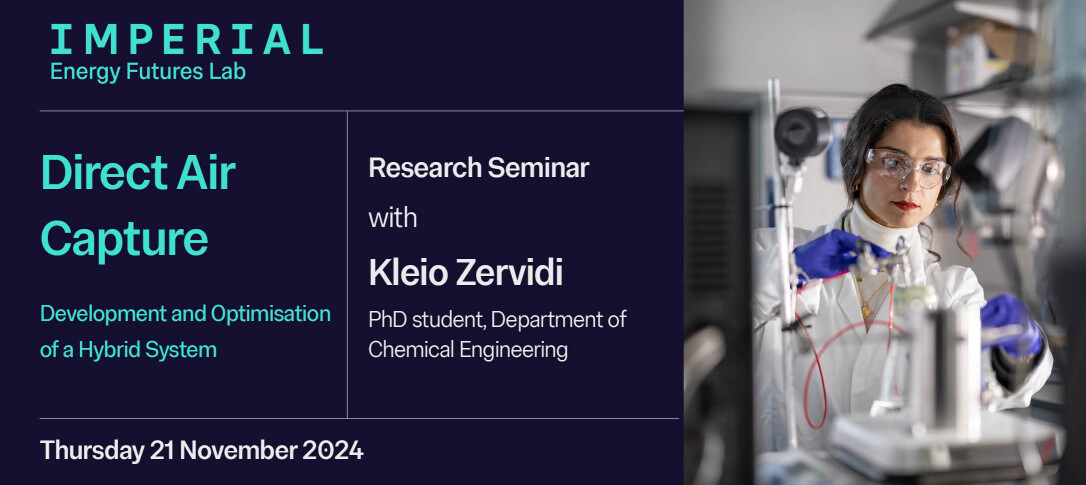
Direct Air Capture: Development and Optimisation of a Hybrid System
In order to meet the Paris Agreement targets to limit global warming below 2℃, an imperative reduction in carbon dioxide emissions is needed. Carbon dioxide removal (CDR) technologies must be implemented at giga-ton scale towards to the net-zero pathway. Direct air capture (DAC) has emerged as one of the most efficient ways to minimize the impact of climate change by tackling hard-to abate sectors and historical emissions. Currently, the estimated cost of DAC in the literature varies over one order of magnitude, ~100–1000$/tCO2 removed. Given the expensive nature of DAC, and its pivotal role in achieving negative CO2 emissions, it is essential to identify technological options that deliver optimal techno-economic performance.
Further information about this session can be found on the booking page linked below
Speaker
Kleio Aikaterini Zervidi is currently a final year PhD student in the Department of Chemical Engineering Imperial College London, supervised by Prof. Martin Trusler, Prof. Camille Petit and Dr. Ronny Pini. Prior to starting her PhD in October 2020, Kleio graduated first of her class from Mining & Metallurgical Engineering Department at National Technical University of Athens in 2017. Subsequently, she undertook an MSc in Petroleum Engineering at Earth Science & Engineering Department, Imperial College London. After which, she worked for 1 year as a reservoir engineer in Rockhopper Exploration plc, an UK-based oil and gas exploration and production company. Her research experience focuses on the design and optimization of adsorption and absorption-based carbon capture technologies and direct air capture applications.
About Energy Futures Lab
Energy Futures Lab is one of seven Global Institutes at Imperial College London. The institute was established to address global energy challenges by identifying and leading new opportunities to serve industry, government and society at large through high quality research, evidence and advocacy for positive change. The institute aims to promote energy innovation and advance systemic solutions for a sustainable energy future by bringing together the science, engineering and policy expertise at Imperial and fostering collaboration with a wide variety of external partners.